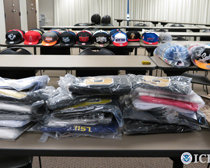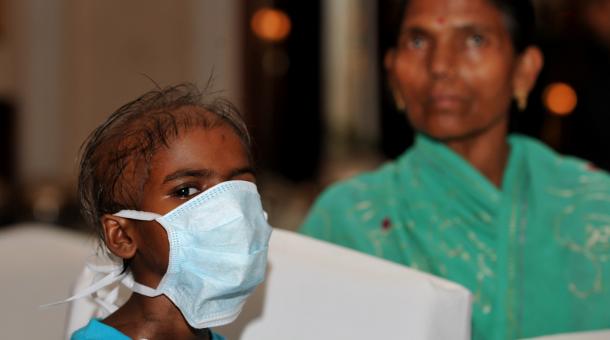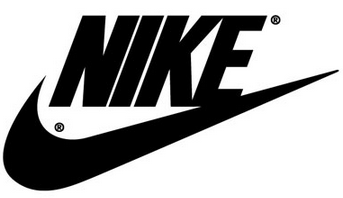An indictment was unsealed today in United States District Court for the Eastern District of New York charging 11 members of a Russian military procurement network operating in the United States and Russia, as well as a Texas-based export company and a Russia-based procurement firm, with illegally exporting high-tech microelectronics from the United States to Russian military and intelligence agencies.1 Alexander Fishenko, an owner and executive of the American and Russian companies, is also charged with operating as an unregistered agent of the Russian government inside the United States by illegally procuring the high-tech microelectronics on behalf of the Russian government. The microelectronics allegedly exported to Russia are subject to strict government controls due to their potential use in a wide range of military systems, including radar and surveillance systems, weapons guidance systems, and detonation triggers.
The charges were announced by Loretta E. Lynch, United States Attorney for the Eastern District of New York; Lisa Monaco, Assistant Attorney General, National Security Division, Department of Justice; Stephen L. Morris, Special Agent in Charge, Federal Bureau of Investigation, Houston Field Office; Under Secretary of Commerce Eric L. Hirschhorn, Department of Commerce; and Timothy W. Reeves, Special Agent in Charge, Naval Criminal Investigative Service, Central Field Office. The arrested defendants will be arraigned later today before United States Magistrate Judge George C. Hanks, Jr., at the U.S. Courthouse in Houston, Texas, where the government will seek their removal to the Eastern District of New York.
In addition to the unsealing of the charges, search warrants were executed today at seven residences and business locations associated with the defendants, and seizure warrants were executed on five bank accounts held by Fishenko and defendant Arc Electronics, Inc., the Texas-based export company. In conjunction with the unsealing of these charges, the Department of Commerce has added 165 foreign persons and companies who received, transshipped, or otherwise facilitated the export of controlled commodities by the defendants to its “Entity List.” This designation imposes a license requirement before any commodities can be exported from the United States to these persons or companies, and establishes a presumption that no such license will be granted.
The Scheme
As alleged in the indictment, between approximately October 2008 and the present, Fishenko and the other defendants engaged in a surreptitious and systematic conspiracy to obtain advanced, technologically cutting-edge microelectronics from manufacturers and suppliers located within the United States and to export those high-tech goods to Russia, while carefully evading the government licensing system set up to control such exports. The microelectronics shipped to Russia included analog-to-digital converters, static random access memory chips, microcontrollers, and microprocessors. These commodities have applications, and are frequently used, in a wide range of military systems, including radar and surveillance systems, missile guidance systems and detonation triggers. Russia does not produce many of these sophisticated goods domestically.
According to the indictment and a detention motion filed by the government today, defendant Alexander Fishenko was born in what was, at the time, the Soviet Republic of Kazakhstan, and graduated from the Leningrad Electro-Technical Institute in St. Petersburg, Russia. He immigrated to the United States in 1994, and became a naturalized citizen of the United States in 2003. In 1998, he founded defendant Arc Electronics, Inc. (“Arc”) in Houston. Between 2002 and the present, Arc has shipped approximately $50,000,000 worth of microelectronics and other technologies to Russia. Fishenko and his wife are the sole owners of Arc, and Fishenko serves as the company’s President and Chief Executive Officer. Fishenko is also a part owner and executive of defendant Apex System, L.L.C. (“Apex”) a Moscow, Russia-based procurement firm. Apex, working through subsidiaries, served as a certified supplier of military equipment for the Russian government. Between 1996 and the present, Fishenko has regularly traveled back and forth between the United States and Russia. Defendant Alexander Posobilov entered the United States from Russia in 2001, and became a naturalized citizen in 2008. He joined Arc in 2004, and serves as its director of procurement. Posobilov was arrested at George Bush Intercontinental Airport in Houston on his way to Singapore and Moscow.
The defendants allegedly exported many of these high-tech goods, frequently through intermediary procurement firms, to Russian end users, including Russian military and intelligence agencies. To induce manufacturers and suppliers to sell them these high-tech goods, and to evade applicable export controls, the defendants often provided false end user information in connection with the purchase of the goods, concealed the fact that they were exporters, and falsely classified the goods they exported on export records submitted to the Department of Commerce. For example, in order to obtain microelectronics containing controlled, sensitive technologies, Arc claimed to American suppliers that, rather than exporting goods to Russia, it merely manufactured benign products such as traffic lights. Arc also falsely claimed to be a traffic light manufacturer on its website. In fact, Arc manufactured no goods and operated exclusively as an exporter.
According to the court documents, the defendants went to great lengths to conceal their procurement activities for the Russian military. For example, on one occasion, defendants Posobilov and Yuri Savin, the Director of Marketing at another Russian procurement firm, discussed how best to conceal the fact that certain goods Savin had purchased from Arc were intended for the Russian military. Savin asked Posobilov, “What can we do if a client is military all over?” Posobilov replied, “We can’t be the ones making things up. You should be the ones.” Similarly, on another occasion defendant Fishenko directed a Russian procurement company that, when the company provided false end user information, to “make it up pretty, correctly, and make sure it looks good.” On yet another occasion, Posobilov instructed a Russian procurement company to “make sure that” the end use certificate indicated “fishing boats, and not fishing/anti-submarine ones . . . Then we’ll be able to start working.”
Despite this subterfuge, according to the documents, the investigation revealed that the defendants were supplying Russian government agencies with sophisticated microelectronics. For example, the investigation uncovered a Russian Ministry of Defense document designating an Apex subsidiary as a company “certified” to procure and deliver military equipment and electronics. The FBI also recovered a letter sent by a specialized electronics laboratory of Russia’s Federal Security Service (“FSB”), Russia’s primary domestic intelligence agency, to an Apex affiliate regarding certain microchips obtained for the FSB by Arc. The letter stated that the microchips were faulty, and demanded that the defendants supply replacement parts.
In addition, in anticipation of an inquiry by the Department of Commerce regarding the export of certain controlled microelectronics, defendants Fishenko, Posobilov, and Arc salesperson Viktoria Klebanova allegedly directed Apex executives Sergey Klinov and Dmitriy Shegurov, as well as other Apex employees, to alter Apex’s website and forge documents regarding certain transactions to hide Apex’s connections to the Russian military. In connection with the cover-up, Apex removed images of Russian military aircraft and missiles and other links to the Russian Ministry of Defense from its website.
The Arc Defendants
In addition to Fishenko, Posobilov, and Klebanova, the indictment charges Arc salespersons Lyudmila Bagdikian, Anastasia Diatlova, Sevinj Taghiyeva, and Svetalina Zagon, as well as Arc shipping manager Shavkat Abdullaev, with one count of conspiring to violate and twenty-one counts of violating the International Emergency Economic Powers Act (“IEEPA”) and the Arms Export Control Act (“AECA”), and with conspiring to commit wire fraud. According to the indictment, these defendants obtained controlled microelectronics by lying and submitting false information regarding the true nature, users, and intended uses of the high-tech goods, then exporting the goods, without the required licenses, to procurement firms in Russia. The defendants’ principal port of export for these goods was John F. Kennedy International Airport in the Eastern District of New York.
The Foreign Defendants
According to the indictment, in addition to owning and controlling Arc, Fishenko is also a controlling principal of the Russian procurement firm Apex, the defendant Sergey Klinov is the chief executive officer of Apex, and the defendant Dmitriy Shegurov is an employee of Apex. Apex and its affiliates supplied microelectronics to Russian government agencies, including Russian military and intelligence agencies. The defendant Yuri Savin was the Director of Marketing at Atrilor, Ltd., another Russian procurement firm. Klinov, Shegurov and Savin conspired with Fishenko and the Arc defendants to obtain controlled U.S.-origin microelectronics and to export those technologically sensitive goods to Russia without the required export licenses by falsifying information to hide the true nature, users and intended uses of the goods. In addition, Fishenko, Posobilov, Klebanova, Klinov and Shegurov were charged with obstruction of justice, and Fishenko and Arc were charged with conspiring to commit money laundering.
The individual defendants face maximum terms of incarceration of five years for the conspiracy charge, twenty years for each of the substantive IEEPA and AECA charges, and twenty years for the obstruction of justice charge. In addition, Fishenko faces a maximum term of incarceration of twenty years for conspiring to commit money laundering, and ten years for acting as an unregistered agent of the Russian government. The corporate defendants face fines of up to $500,000 for the conspiracy count and $1,000,000 for each of the substantive IEEPA and AECA counts.
“As alleged in the indictment, the defendants spun an elaborate web of lies to evade the laws that protect our national security. The defendants tried to take advantage of America’s free markets to steal American technologies for the Russian government. But U.S. law enforcement detected, disrupted, and dismantled the defendants’ network,” stated United States Attorney Loretta E. Lynch. “We will not rest in our efforts to protect the technological advantage produced by American ingenuity. And, we will expose and hold responsible all who break our counter-proliferation laws, particularly those, like Fishenko, who serve foreign governments.” Ms. Lynch thanked the United States Attorney’s Office for the Southern District of Texas for its assistance in this matter.
“Today’s case underscores the importance of safeguarding America’s sensitive technology and our commitment to disrupt and prosecute networks that attempt to illegally export these goods,” said Lisa Monaco, Assistant Attorney General for National Security. “I applaud the many agents, analysts, and prosecutors who worked on this extensive investigation.”
“In this day and time, the ability of foreign countries to illegally acquire sensitive and sophisticated U.S. technology poses a significant threat to both the economic and national security of our nation,” said Houston FBI Special Agent in Charge Stephen L. Morris. “While some countries may leverage our technology for financial gain, many countries hostile to the United States seek to improve their defense capabilities and to modernize their weapons systems at the expense of U.S. taxpayers. The FBI will continue to work aggressively with our partners in the U.S. Intelligence Community to protect this technology and hold accountable those companies that willfully choose to violate our U.S. export laws.”
“Today’s action is a perfect example of two of the core benefits of the Administration’s export control reform effort – higher enforcement walls around controlled items and extensive coordination and cooperation among the enforcement agencies. I applaud our special agents who worked with the Justice Department in the interagency effort that led to today’s actions,” said Under Secretary of Commerce Eric L. Hirschhorn.
“The receipt of U.S.-made, cutting-edge microelectronics has advanced Russia’s military technological capabilities. NCIS and the Department of the Navy have worked closely with the FBI, the Department of Justice, and the Department of Commerce in this investigation due to the potential for significant enhancement of Russian naval weapons systems that would result from the illegal acquisition of these export-controlled technologies,” said Special Agent in Charge Timothy W. Reeves, NCIS Central Field Office.
As a result of this case, there may be victims and witnesses who need to contact the agencies involved in the investigation. If your business has been approached by one of the defendants, or by someone trying to obtain export-protected, sensitive technology who appeared not to be legitimate, please report that information to[email protected]. The information will remain confidential and will be handled by the appropriate authorities.
The government’s case is being prosecuted by Assistant United States Attorneys Daniel Silver, Hilary Jager, and Claire Kedeshian, as well as Trial Attorney David Recker of the Counterespionage Section of the Department of Justice.
The Defendants:
Arc Electronics, Inc.
Principal Place of Business: Houston, Texas
Apex System, L.L.C.
Principal Place of Business: Moscow, Russia
Alexander Fishenko
Age: 46
Shavkat Abdullaev
Age: 34
Lyudmila Bagdikian
Age: 58
Anastasia Diatlova
Age: 38
Viktoria Klebanova
Age: 37
Sergey Klinov:
Age: 44
Alexander Posobilov
Age: 58
Yuri Savin:
Age: 36
Dmitriy Shegurov
Age: Unknown
Sevinj Taghiyeva
Age: 32
Svetalina Zagon
Age: 31
_____________________
1The charges contained in the indictment are merely allegations, and the defendants have not yet been convicted of these offenses.
SOURCE: DEPARTMENT OF JUSTICE


